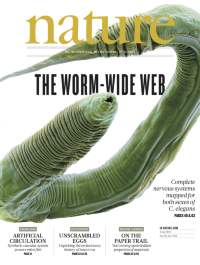 Exhalation is a diverse and original collection of (more or less) short stories by Ted Chiang, published between 2007 and 2015 in different journals including Nature at the time Nature had a weekly one-page short story (of varying quality). This is science fiction in a sense, given that all stories involve impossible situations and a connection with science at a low technical level (no space opera). However, it is much closer to philosophy in my opinion in that the author builds upon an alternate reality to question ours, sometimes with remarkable prescience and a remarkable kindness towards his characters.
Exhalation is a diverse and original collection of (more or less) short stories by Ted Chiang, published between 2007 and 2015 in different journals including Nature at the time Nature had a weekly one-page short story (of varying quality). This is science fiction in a sense, given that all stories involve impossible situations and a connection with science at a low technical level (no space opera). However, it is much closer to philosophy in my opinion in that the author builds upon an alternate reality to question ours, sometimes with remarkable prescience and a remarkable kindness towards his characters.
So, there is the time travel portal story that does not lead to paradoxes, even with temporal loops, but to a reflection on human nature. (Not my favourite but this first story got the Nebula Award, the Hugo Award, and the Seiun Award!) They are doomed universes, either because the pressure is slowly getting away, or because a lack of communication and awareness pushes one species towards extinction (with the side sad coïncidence of being associated with the soon to fall Arecibo dish!). There are social media killing free will but calling for resistance. And a novella on virtual entities (digients) turning more and more real, while the company that produced them goes bankrupt and their universe is no longer upgraded, which also brings a well-balanced discussion on whether or not they should become legal entities and be given freedom, resonating in opposition to the recent doomsaying warnings about AI taking over humanity. Plus reflecting on the hardships of parenting and teaching. There is a Victorian story of building a difference engine nanny, with terrible consequences on two successive generations. There is another story about the potential horror of having one’s entire life stored on line and accessible by sentient interfaces, negating the very notion of memory since both remembering and forgetting escape the individual. There is a pre-Copernician universe where everything literally fits the Bible creation, until it does not. And there is the case of a quantic collection of universes where alternate paths could be consulted, to the point of interacting with alternate selves, maybe a bit fuzzy in the scientific details, but again leading to deeper reflections on human nature. I read the book around my trip to Melbourne and back, which may explain for my highly positive reaction as I had plenty of free time and sunny days to enjoy reading in the planes, on the trams (where I nearly lost my wallet, rescued by the kindness of another passenger!), and in my St Kilda comfy rental, but I do very much recommend it. Especially for those with a scientific mind. Joyce Carol Oates wrote for The New Yorker a much longer and better argued analysis of Exhalation. when the book appeared.
[Disclaimer about potential self-plagiarism: this post or an edited version may eventually appear in my Books Review section in CHANCE.]



